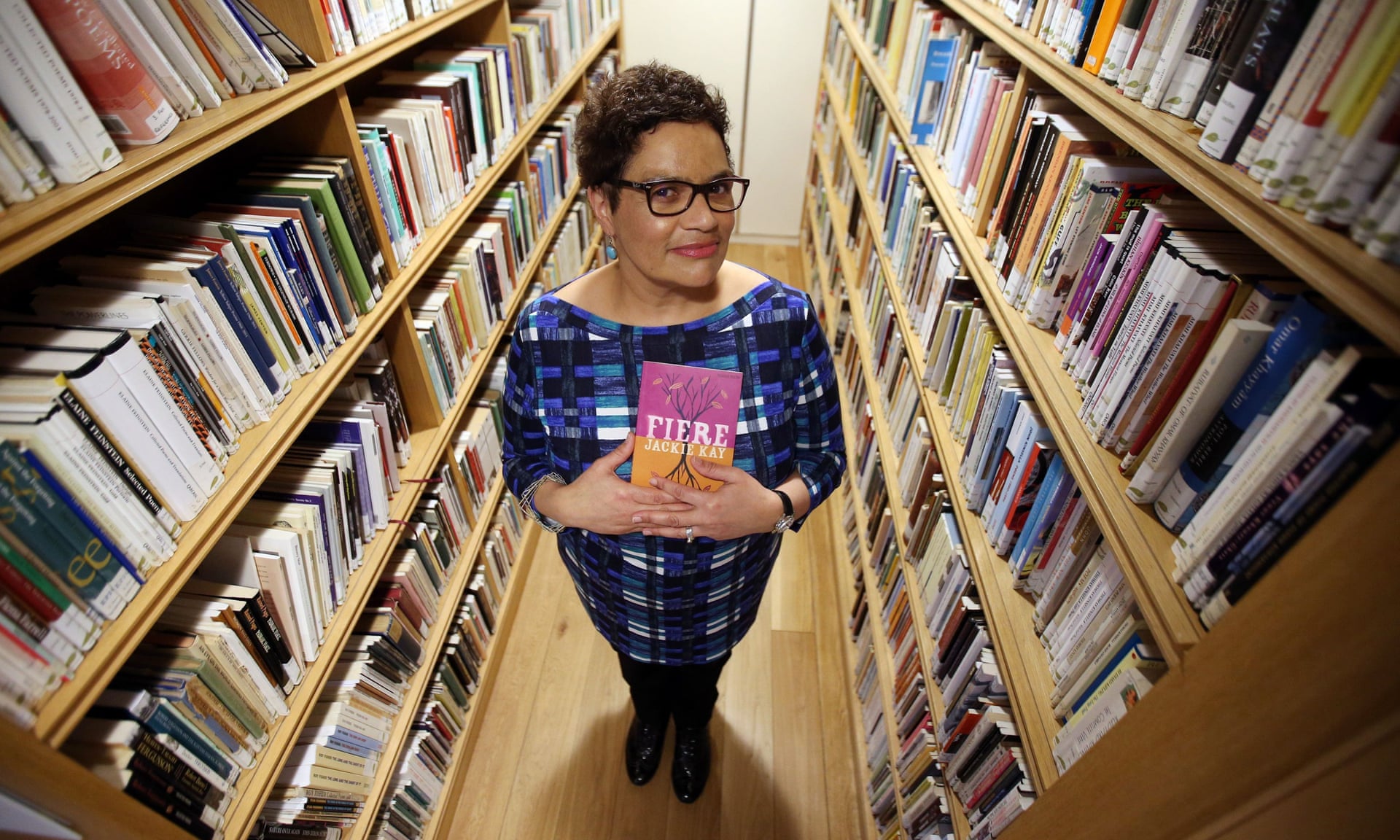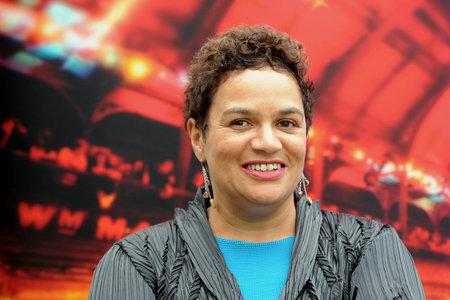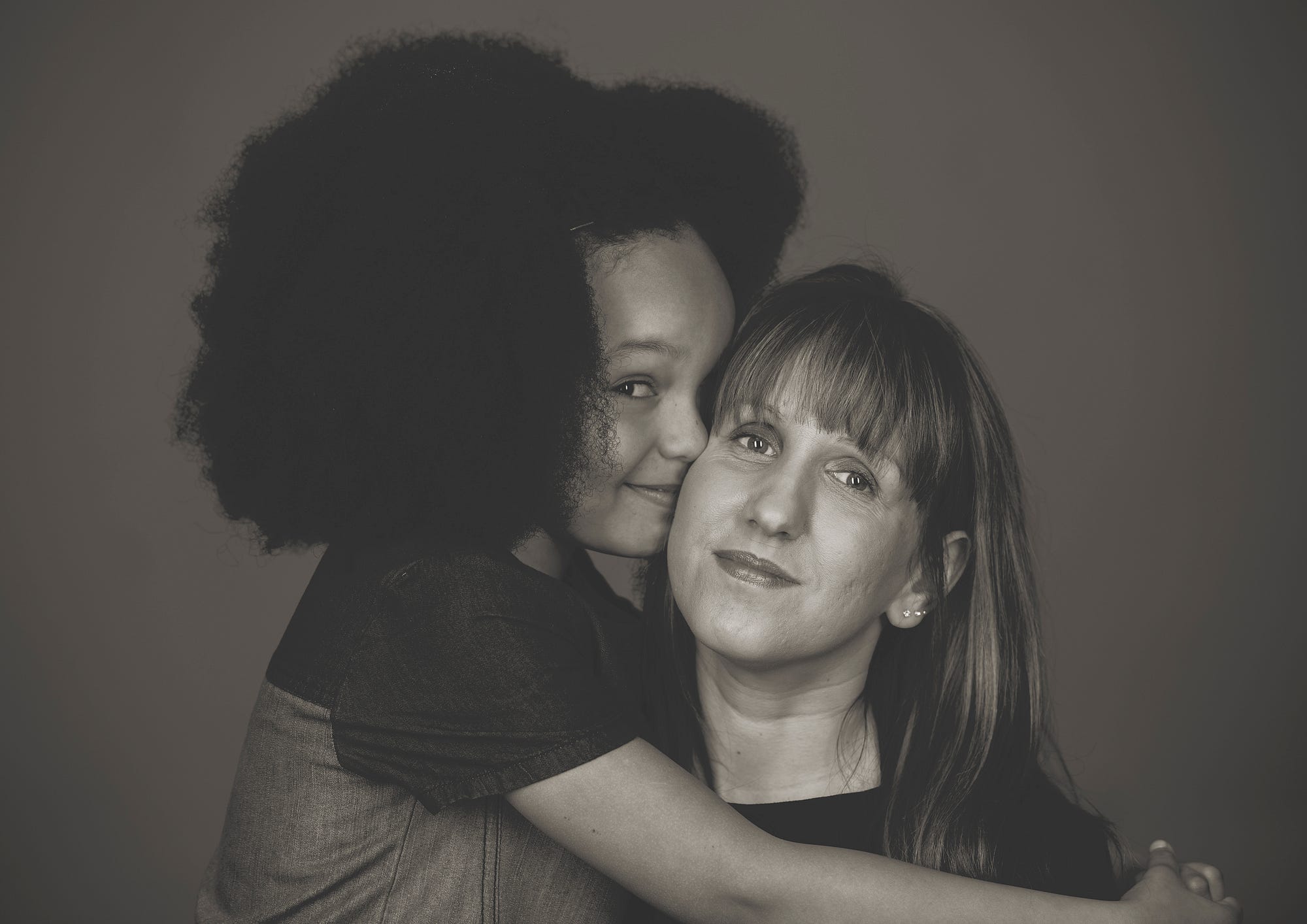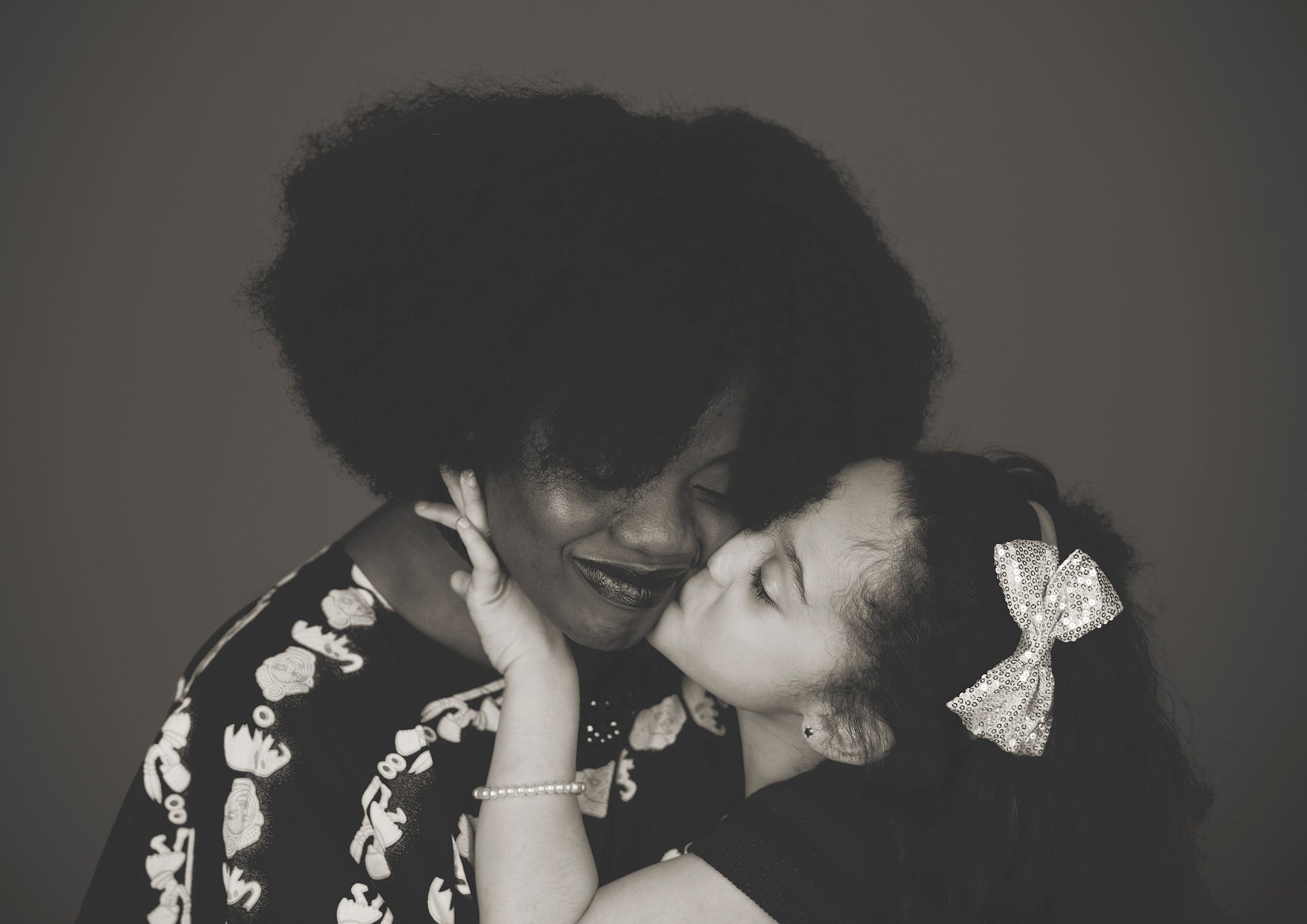The SRB Interview: Jackie Kay
Scottish Review of Books
Volume 11, Issue 3 (2016)

Opening one of Jackie Kay’s books is like walking into a busy metropolitan bar that has accommodated within its walls the deep past, character and charm of a country pub. You know you will encounter stories comic and sad, that you will never leave thirsty, and that the mind will feel renewed with the spirit, musicality and colour of life. Kay was born in Edinburgh in 1961 to a Nigerian father and a Scottish mother. She was adopted at birth by Helen and John Kay, who lived, and still live, in Bishopbriggs, Glasgow. Helen was a primary school teacher who was also secretary of the Scottish peace movement and John worked full time for The Communist Party. When Kay was pregnant with her son Matthew she started a search for her birth parents, and this long experience, along with her Scottish upbringing, is recounted in her memoir Red Dust Road (2010). Kay’s writing style is as varied and vivid as her life, and her ability to inhabit voices and capture them on the page was demonstrated in her first poetry collection, The Adoption Papers (1991). It incorporated themes still prevalent in her work today: ‘what is identity? Is identity a shifting, fluid thing? How much are we made up by genes, and how much by stories? How much is it possible to escape the constraints of our own DNA and invent ourselves? How much does love define us, and make things possible? Does being loved change the shape of your face, or change the look in your eyes, or change your voice, or your body?’
Kay’s output is too prolific to give but a précis. Her second poetry book, Other Lovers (1993), explored the impact of colonialism and slavery on black culture, and it was a topic she returned to in her play The Lamplighter (2008). She has a written a sequence of poems about Bessie Smith, and she also wrote a biographical portrait of the great blues singer, which was published in 1997. Jazz and blues have been a lifelong love, and her novel Trumpet (1998), republished this year as a Picador classic, is about a jazz musician called Joss Moody. Upon his death, the trumpet player is found to have been a woman, and the novel refracts Moody’s life through the lens of those who knew him and the media eye. Kay’s short story collections include Why Don’t You Stop Talking (2002) and Reality, Reality (2012). Her most recent poetry collections are Fiere (2011) and the pamphlet The Empathetic Store, published in 2015 by Mariscat Press. In progress is a new novel, Bystander.
Kay has lived in Manchester for the last twenty years, although she has said ‘in my mind I also live in Scotland’, and frequently is at home in Glasgow seeing her parents. Nick Major met Kay in HOME, a new arts centre and theatre space near Manchester’s old industrial centre. They sat in the upstairs restaurant beside tall glass windows that afforded a view of the sun. The room was baked in a heat that defied the cold winter’s day outside. They had a long afternoon lunch, punctuated with coffee to keep the mind fresh. The clatter of other lives, other lunches, was all around them. Small in stature, large in mind, she was wearing a red jumper that matched the city’s prevailing colour, and two silver discs hung from her ears, shimmering in the light. Kay is a fast talker, and often spoke in long looping sentences that circled every subject, always prodding and poking at it in a search for a newer, clearer understanding. As this edition of the Scottish Review of Books went to press she was appointed our new Makar.
The Scottish Review of Books: You’ve lived in Manchester for many years now, but do you still think of Glasgow as home?
Jackie Kay: I think of Glasgow as my home in the many ways that a person can think of a home. My parents live in exactly the same house I grew up in. Nobody’s been in that house except our family. It’s a Lawrence house. But Glasgow as a city is a spiritual home, and I love the robust energy of the place and all the contradictions. It’s a city of doubles and amazing contrasts. It often gets less attention because Edinburgh is like a beautiful twin sister, but Glasgow is beautiful in its own different way. It is a city that can still surprise you; you can keep getting to know it because it keeps on changing…
Read the entire interview here.




